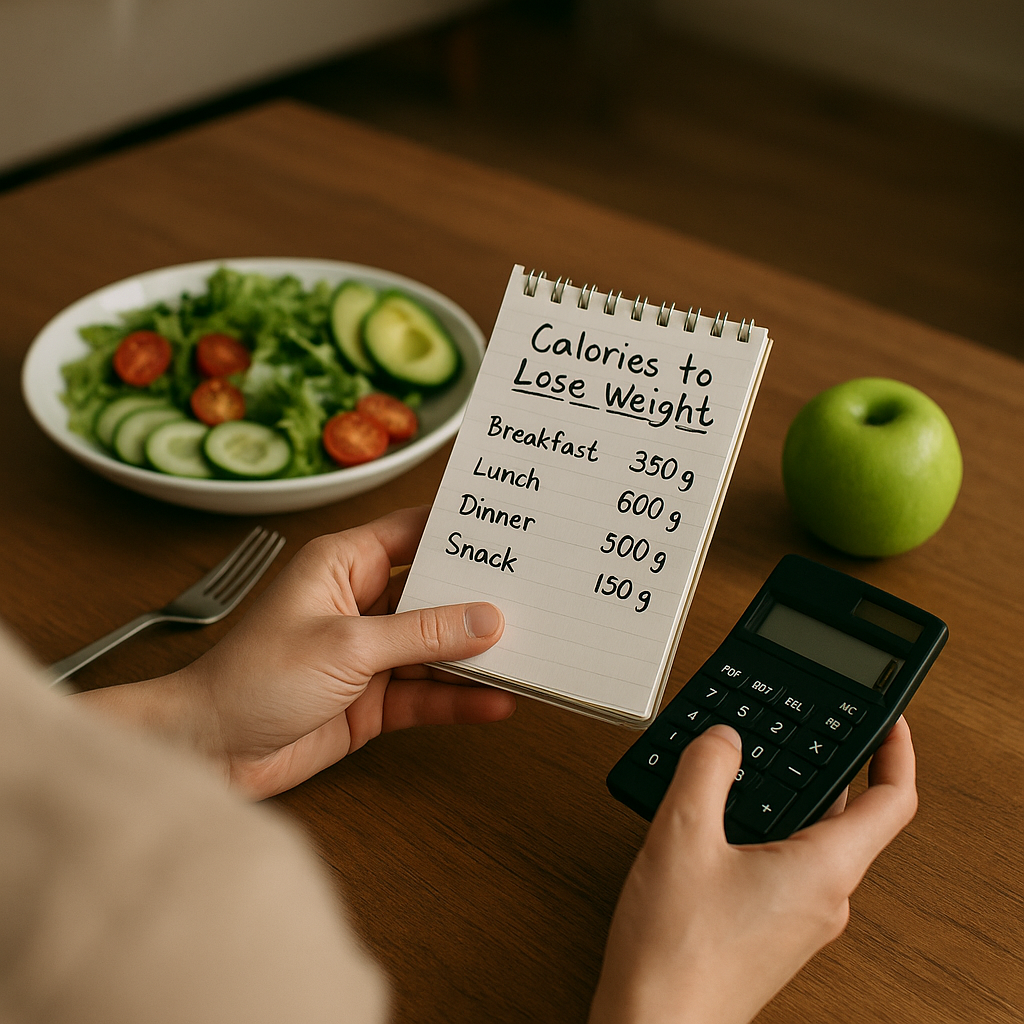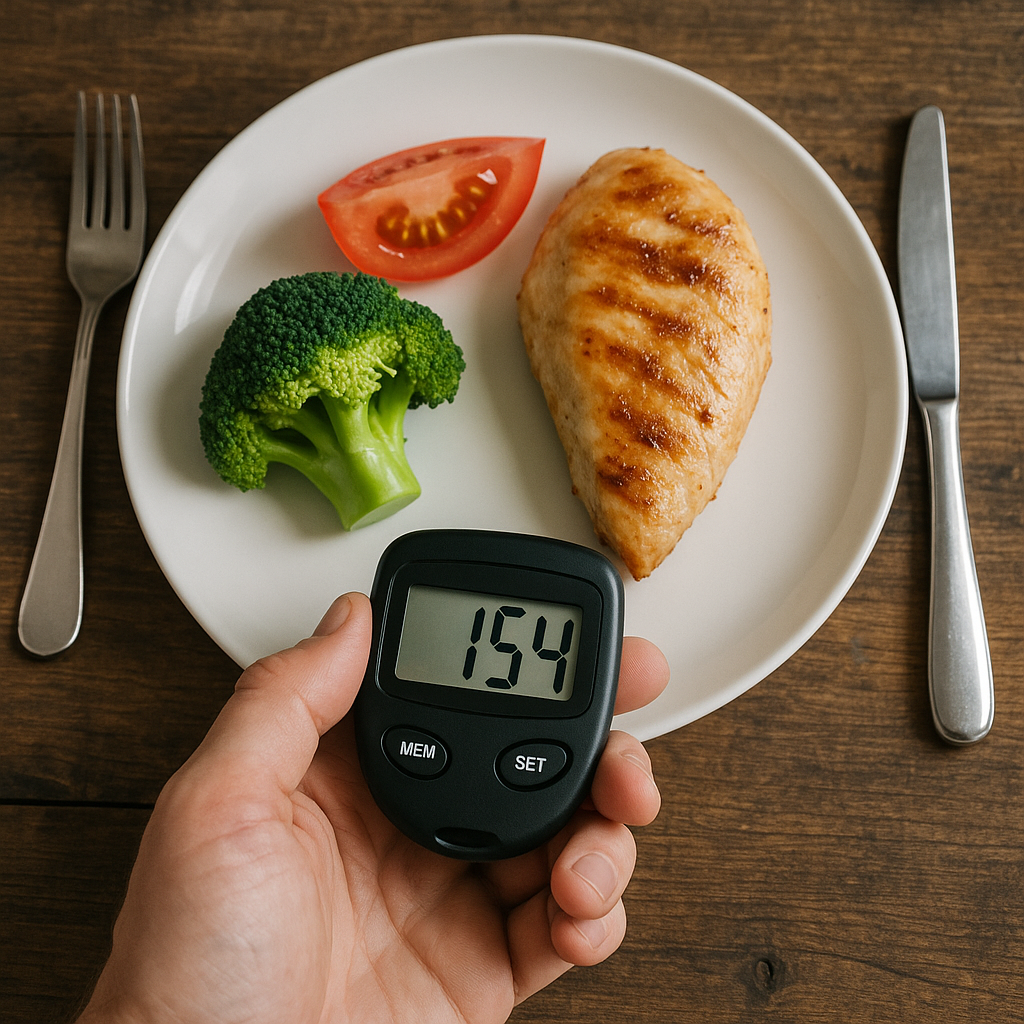Ask Ayurvedic doctor a question and get a consultation online on the problem of your concern in a free or paid mode. More than 2,000 experienced doctors work and wait for your questions on our site and help users to solve their health problems every day.
How Many Calories Should I Eat to Lose Weight According to Ayurveda

Let’s just be honest — the whole “how many calories should I eat to lose weight” question is so common, it’s almost become a chant at this point. Search it once and your feed fills with numbers, charts, and apps yelling conflicting advice. Some say 1,200 calories a day. Others say 1,800 if you lift weights. Then there’s that fitness guru on TikTok who swears it's not about how much you eat, but when. And if you're like me, maybe you've tried them all and still ended up confused, cranky, and somehow still bloated.
But here’s where Ayurveda enters, like a wise friend who’s not interested in calorie math but you. Your body. Your tendencies. Your digestion. Instead of asking how many calories should you eat to lose weight, Ayurveda leans in and goes — “Wait. How’s your appetite today? How’s your fire?” And by fire, I mean Agni, the key to everything in this ancient system.
This article isn’t about tossing calorie tracking out the window. It’s about expanding the lens. You’ll still find insights into calorie intake to lose weight, the idea of calorie deficit, and yes — we’ll gently nudge that “calories to eat to lose weight” question. But we’re going to anchor it in something deeper, something more... human. You ready?

Why the Number of Calories Isn’t Everything in Ayurveda
Eating According to Hunger, Not Numbers
Ayurveda doesn’t calculate calories. It observes patterns. One day you’re starving by noon, the next you’re sipping warm water and skipping lunch entirely. And that’s okay. Hunger is not a flaw in the system — it is the system.
Modern diets often make you feel guilty for being hungry. You hear things like “you already hit 1,500 calories, why are you still hungry?” But Ayurveda would ask: Did you digest your last meal well? Is your Agni strong today? Is it cold or windy outside?
Instead of obsessing over “how many calories should I eat to lose weight,” Ayurveda encourages checking in: Am I truly hungry? Is my stomach empty? Is my mind calm? Am I eating because it’s noon or because my body is asking?
It’s a shift from numbers to signals.
Role of Agni (Digestive Fire) in Weight Balance
Agni isn’t some mystical force — though it can feel magical when it’s working right. It’s the fire of digestion, metabolism, assimilation. A weak Agni? You might feel heavy, sluggish, even if you’re eating “clean.” A strong Agni? You’ll feel light, focused, energized, regardless of your “calories a day to lose weight” count.
That’s why two people can eat the same meal — same calories, macros, everything — and one gains weight, the other loses it. Because Agni isn’t equal for everyone. Ayurveda says: Balance the fire, and the body follows.
There are many ways to stoke this fire: warm meals, digestive spices (like cumin, ginger, and black pepper), avoiding cold water with meals. These aren't trendy hacks. They're practices refined over thousands of years.
Don't wait or self medicate. Start chat with Doctor NOW
What Determines Caloric Needs in Ayurveda
Dosha Type and Appetite Patterns
So let’s get into the Ayurvedic nitty-gritty — your dosha. Because yeah, your calorie needs aren’t just a matter of height × weight ÷ random multiplier. Ayurveda says it depends on your dominant mind-body type: Vata, Pitta, or Kapha.
Vata types — the air-and-space folks — tend to be light, quick, and prone to irregular digestion. One day they’re ravenous, the next they forget to eat. They burn through food fast but are also the ones who lose weight just by being stressed. Their appetite is like a flickering candle — easily blown out. For Vatas, asking “how many calories should I eat to lose weight” might not even make sense. They’re often under-eating already. What they really need is nourishment and routine.
Pitta types — fire and water — usually have strong digestion. Think focused, intense, and often hangry if meals are missed. They benefit from regular meals and cooling foods. Pittas do well with moderation. If they’re counting calories to lose weight, it often becomes an obsession. But when they listen to their body’s signals, they usually find a natural rhythm that works.
Kapha types — the earth-and-water folks — have a slow, steady burn. They're grounded and strong, but their digestion tends to be sluggish. For Kaphas, reducing heavy, oily, and overly sweet foods can help. They may benefit most from creating a mild calorie deficit to lose weight, but always in a way that supports, not starves, their Agni.
Bottom line: different doshas metabolize food differently. Calorie intake to lose weight isn’t one-size-fits-all. Knowing your type can help you stop fighting your body and start working with it.
Seasonal Adjustments and Daily Rhythms
Here’s a little-known Ayurvedic gem: your calorie needs change with the seasons. Yep, just like your skin dries out in winter or your sleep gets weird in spring, digestion ebbs and flows too.
In winter (when Agni is naturally strong), you can actually eat more. Your body is primed to digest heavier, richer meals — which is wild considering that’s when modern diets tell you to “detox.”
In summer, digestion weakens, and lighter meals are ideal — lots of fresh fruits, salads, cooling herbs. But here's where the modern idea of calories to eat to lose weight gets tricky: the same 500-calorie salad might feel light in July but leave you shivering in December.
Daily rhythms matter, too. Ayurveda teaches that your biggest meal should be around noon, when the sun (and your Agni) is strongest. Eating heavy at night? That’s a one-way ticket to undigested food and extra weight. Even if you’re “within your calories for the day.”
So rather than asking how many calories should I eat to lose weight, maybe ask: What’s the season? What time is it? How’s my fire? It’s a different approach, but honestly — it makes a lot more sense once you live it.

Calorie Deficit vs Balanced Nourishment in Ayurveda
Lightness, Satiety, and Digestion as Primary Guides
Here’s the kicker: Ayurveda doesn’t talk about a calorie deficit to lose weight — not in numbers, anyway. But it does emphasize a sense of lightness after eating. That satisfied-but-not-stuffed feeling? That’s the goal.
If you eat and feel heavy, sluggish, or sleepy afterward — even if you’re in a supposed deficit — that’s a sign something’s off. Either the food wasn’t right for your constitution, or your Agni couldn’t handle it. So the modern logic of “as long as you’re under your calorie target, you’ll lose weight” doesn’t always apply here.
At the same time, if you’re constantly hungry, dreaming of carbs, snapping at your cat — yeah, probably eating too little. There’s a fine line between lightness and depletion.
Signs That You're Under- or Over-Eating
You don’t need an app to know if you’re eating the right amount. Ayurveda gives some super practical signs to watch:
You might be over-eating if...
-
You feel bloated, sleepy, or dull after meals.
-
Your tongue has a thick coating (undigested toxins).
-
You don’t feel hungry at regular mealtimes.
You might be under-eating if...
-
You feel cold, anxious, or easily agitated.
-
You get dizzy, lightheaded, or can’t concentrate.
-
You wake up at night with hunger pangs.
So instead of obsessing over calories to burn to lose weight, start tuning into these signals. Your body’s smarter than a spreadsheet.
Mindful Eating and the Right Quantity (Matra) of Food
How to Know Your Ideal Portion Size Without Counting
Ayurveda says your stomach should be filled one-third with food, one-third with water, one-third with air. Is it exact? Nope. But it's surprisingly effective.
One practical trick: cup both your hands together — that’s your ideal solid food portion. Not by grams or calories, but based on the size of your body. It’s personal, adaptable, and — bonus — travel-friendly.
Eating Slowly, Without Distractions, in Peaceful State
Ayurveda is weirdly strict about one thing: no multitasking while eating. No doomscrolling. No lunch at your desk. No eating while angry.
Eating slowly, chewing thoroughly, and being present? That’s not just romantic. It’s digestion 101.
Stress shuts down Agni. No matter how perfect your “calorie intake to lose weight” is, you won’t digest properly if your nervous system is in fight-or-flight.
So light a candle. Sit down. Take three deep breaths. Eat like your gut depends on it — because it kind of does.

How to Support Weight Loss Without Tracking Calories
Dinacharya for Metabolism Support
Establishing a daily routine — dinacharya — helps stabilize metabolism. Wake up around sunrise. Go for a short walk. Eat meals at consistent times. Sleep before 10 PM. Simple, unsexy stuff — but powerful over time.
Herbal Teas and Spices That Stimulate Agni
Try sipping ginger tea before meals or sprinkling trikatu (a blend of black pepper, long pepper, and ginger) on food. Spices like turmeric, cumin, and fennel gently stoke digestion without overdoing it.
Breathwork and Light Movement for Energy Flow
Mild exercise — walking, yoga, even dancing in your kitchen — supports circulation and keeps Kapha from accumulating. Add pranayama (breathwork) in the morning to energize and center yourself. No gym needed. No calorie tracking. Just daily momentum.
Conclusion
So, how many calories should I eat to lose weight?
Maybe the better question is: What makes me feel light, nourished, and balanced?
Ayurveda doesn’t cancel out modern nutrition — it complements it. Counting calories to lose weight has its place. But when paired with mindful eating, personalized digestion, and self-awareness? That’s where lasting transformation lives.
Forget rigid numbers. Tune into rhythm. You’re not a machine. You’re a complex, adaptable, wildly intelligent system. Trust it.
FAQs
Q: How do I calculate how many calories I need to lose weight?
A: You can use a calorie calculator as a starting point (based on age, gender, weight, activity level). But Ayurveda encourages listening to your body’s hunger and digestion cues over rigid numbers.
Q: Is counting calories necessary for weight loss in Ayurveda?
A: No. Ayurveda doesn’t rely on calorie counting. Instead, it emphasizes portion awareness, Agni (digestive strength), and mindful eating to support sustainable weight loss.
Q: How do I know if I’m eating too little to lose weight?
A: Signs include fatigue, anxiety, poor sleep, cold hands/feet, and constant hunger. Even if weight is dropping, under-eating weakens Agni and can backfire long-term.

